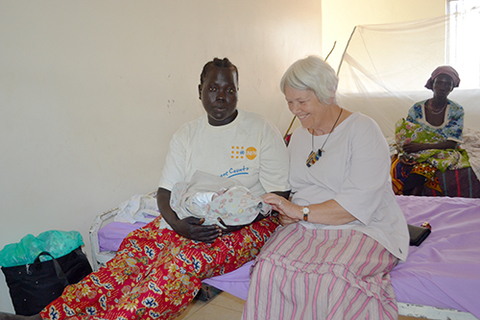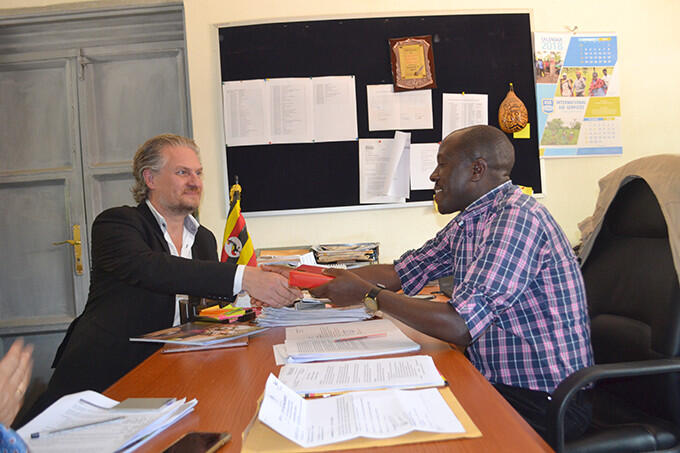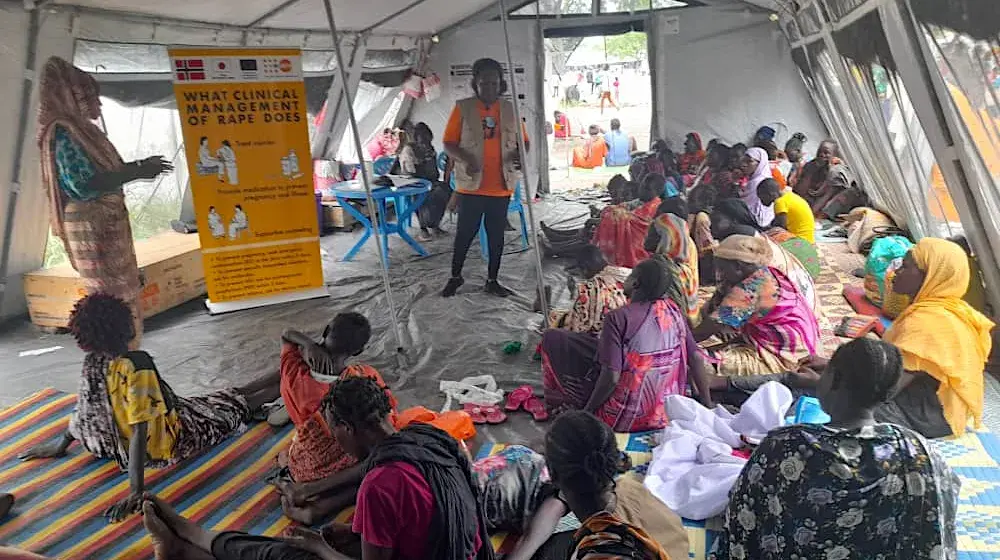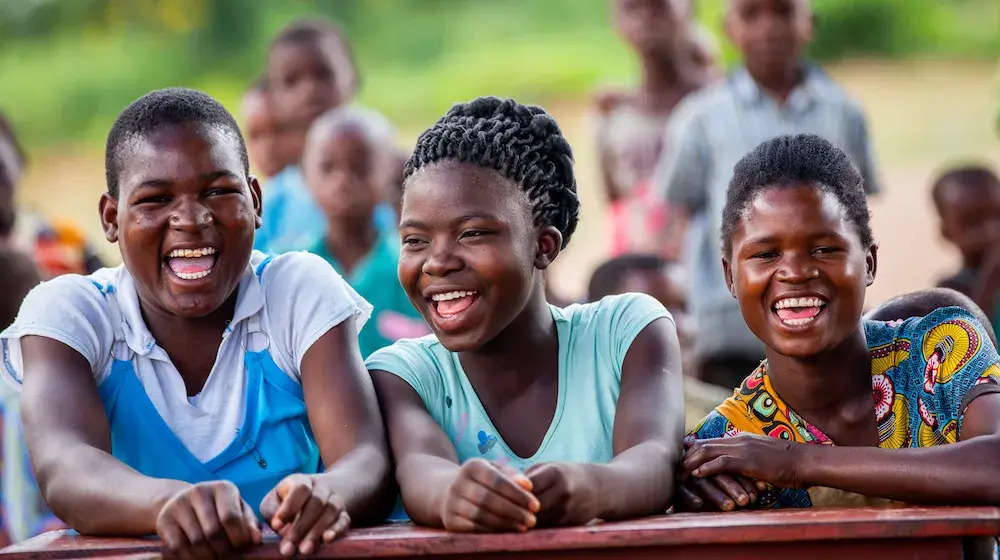KAMPALA, Uganda—Three Danish Members of Parliament visited Uganda to gain insight into UNFPA-supported government interventions to promote sexual and reproductive health and rights and address gender-based violence.
In December 2017, the Danish Government signed a five-year agreement with UNFPA, committing DKK 85 million (about $13 million) towards improving the health of women and young people in Uganda.
“Through the interventions currently supported by the Government of Denmark, we expect to reach approximately 450 schools and 200 health facilities across the target districts,” said Alain Sibenaler, UNFPA Representative in Uganda.
“In addition, an estimated 600 health workers and 200 service providers will be supported with training on sexual and reproductive health and rights, as well as prevention and response to gender-based violence,” he said.
From 12 to 15 September, the delegation visited health facilities, youth centres, women’s centres and refugee settlements in Arua district, West Nile, and Kampala. Headed by Henrik Dahl of the Liberal Alliance Party, it included Nick Hækkerup of the Social Democratic Party and Ulla Sandbæk of the Alternative Party, as well as officials from the embassy and the Ministry of Foreign Affairs.

refugee from South Sudan who gave birth just 30 minutes before
the Danish delegation arrived at Siripi Health Centre III.
© Prossy Nakanjako/UNFPA Uganda
During their visit, the parliamentarians sought an in-depth understanding on issues like the causes of maternal mortality in Uganda, and what is being done to reduce the numbers; or how partners work with local institutions to change social norms that uphold harmful practices like child marriage.
“We are here to understand what you are doing, so that when we go back to Copenhagen, we are ambassadors for what you are doing in Arua,” said Mr. Dahl at a meeting with local leaders in Arua District.
“I am very sure you are doing this not because you have a lot of money,” said Ismael Ochengel, the district’s chief administrative officer, “but because you have a heart to help those in distress. So when you go back home, extend our gratitude.”
– Prossy Jonker Nakanjako




